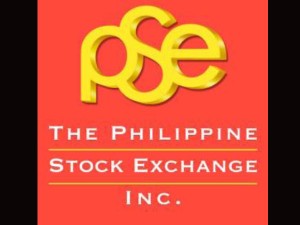Philippines, Singapore bourses to develop derivatives

In a joint statement on Wednesday, the PSE and SGX announced the signing of a memorandum of understanding to cooperate in the development of Philippine-linked derivative products to “address the demands of international investors.”
A derivative is a tradeable financial instrument whose value is based on an underlying index, commodity or currency. In the case of futures, it’s a contract that allows investors to bet on the direction of an underlying commodity, currency or index in a formal exchange, allowing hedgers and speculators to trade.
The first product to be launched by PSE and SGX is a Philippines index futures based on the MSCI Philippines index. The targeted listing by this yearend is still subject to regulatory approvals.
Both exchange have also agreed to look into the potential listing of derivatives products on PSE “in due course” in response to the needs of the markets.
“We are delighted to have SGX as a partner in the building of the Philippines derivatives market. We look forward to leveraging on SGX’s experience and network, alongside growing investment interest in the Philippines, to bring the country’s capital market to new heights,” PSE president Hans Sicat said.
“We look forward to this strengthened partnership with PSE and the opportunity to advance both our derivatives markets. With this futures contract, investors are assured of an efficient and effective risk management tool as they tap opportunities offered by the Philippine economy,” said SGX chief executive officer Magnus Bocker. “The addition of this contract also builds upon SGX’s offering of a one-step access into Asia’s key capital and growth markets.”
Derivatives account for between 25 percent and 28 percent of SGX’s total revenue, the report said.
Fund managers said that the introduction of Philippine equity index futures will spur more liquidity to the underlying market, allow investors to hedge their long positions without selling outright, broaden the investor base and give additional visibility to Philippine equities.
But there is likewise concern from some trading participants that the introduction of Philippine equity futures in Singapore could siphon off money that would otherwise be invested directly in the Philippines.
“Investors don’t have to buy Philippine stocks anymore,” said Joseph Roxas, president of the local stock brokerage Eagle Equities.
For his part, Sicat said the local market still lacked the fundamental basis to introduce PSEi futures, explaining why the PSE was thus agreeable to such products debuting in SGX instead.
The market still does not conduct stock borrowing efficiently yet, although the PSE is hoping this year volume will pick up, Sicat said.
In securities borrowing and lending, stocks from an investor’s portfolio can be lent to a borrower who needs the stocks for settlement obligations to support trading strategies. It involves the physical transfer of shares to the borrower while the lender still retains certain rights accruing to the shares of stocks lent. In other markets, it helps improve market liquidity through the creation of more sophisticated trading strategies and introduction of derivative instruments.
In 2012, Sicat estimated that stock borrowing transactions amounted to only P1 billion, which he noted was “very small” considering that in many exchanges, stock borrowing would account for between 10-20 percent of total volume.
“They are now mainly using it for fail trade management…. People don’t use it yet efficiently to hedge positions,” he told reporters on the sidelines of a Euromoney-organized investment forum on Tuesday. “The market has to graduate to that and we’re hoping that ETF (exchange traded funds) will eventually contribute to that activity.”
An ETF offers public investors undivided interest in a pool of securities and other assets. It is similar in many ways to traditional mutual funds, except that shares in an ETF can be bought and sold throughout the day like stocks on an exchange through a broker or dealer.
